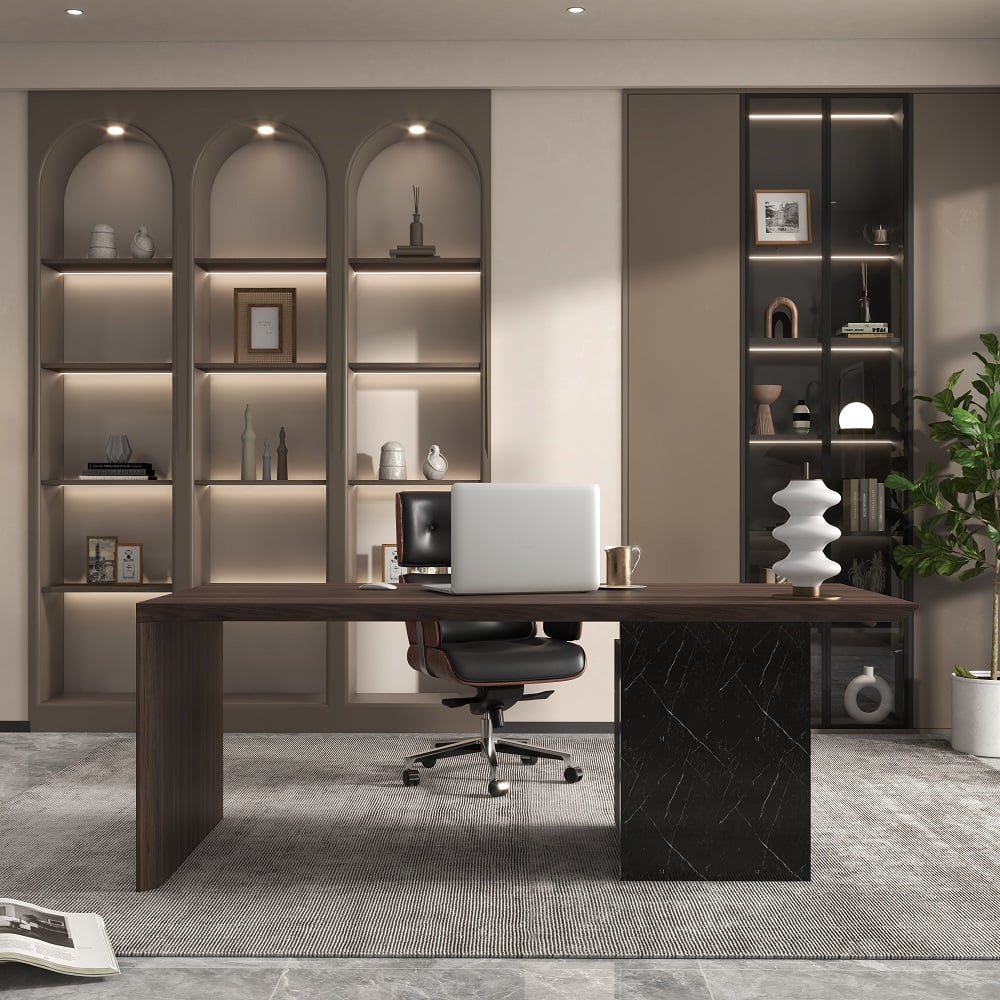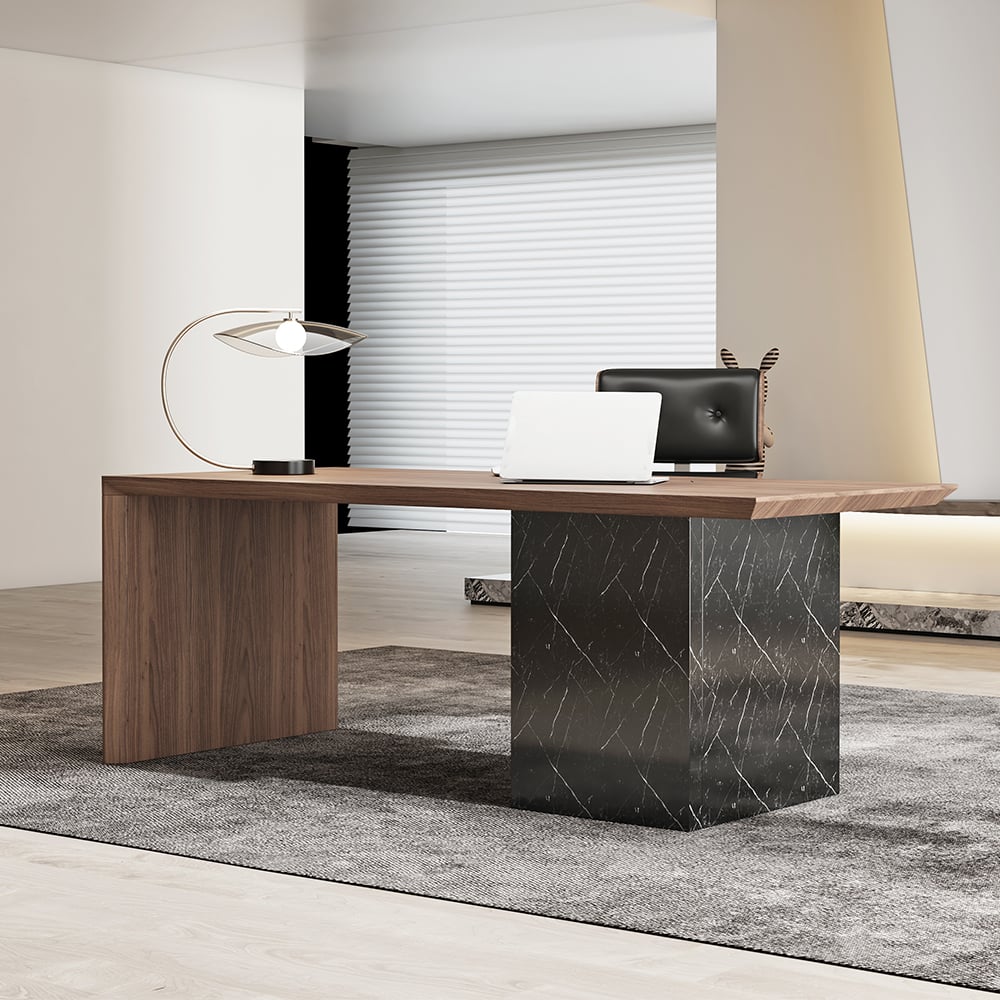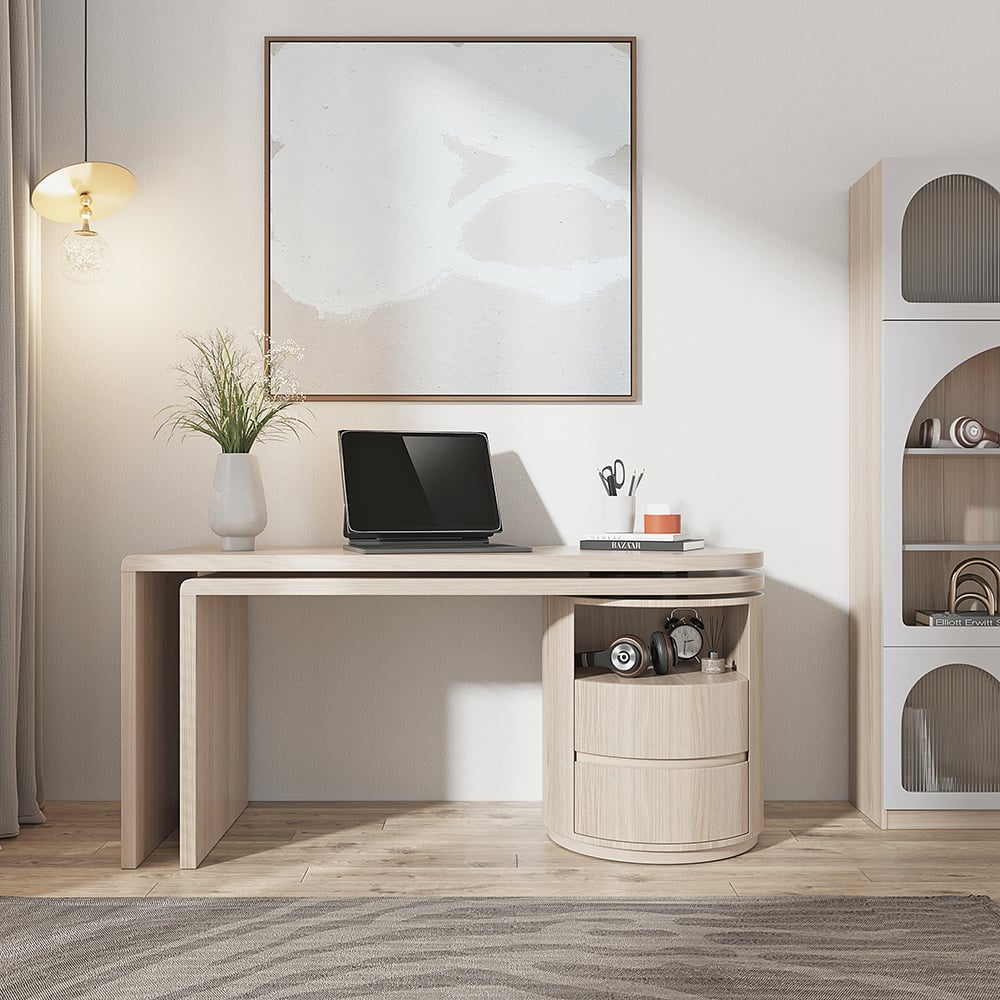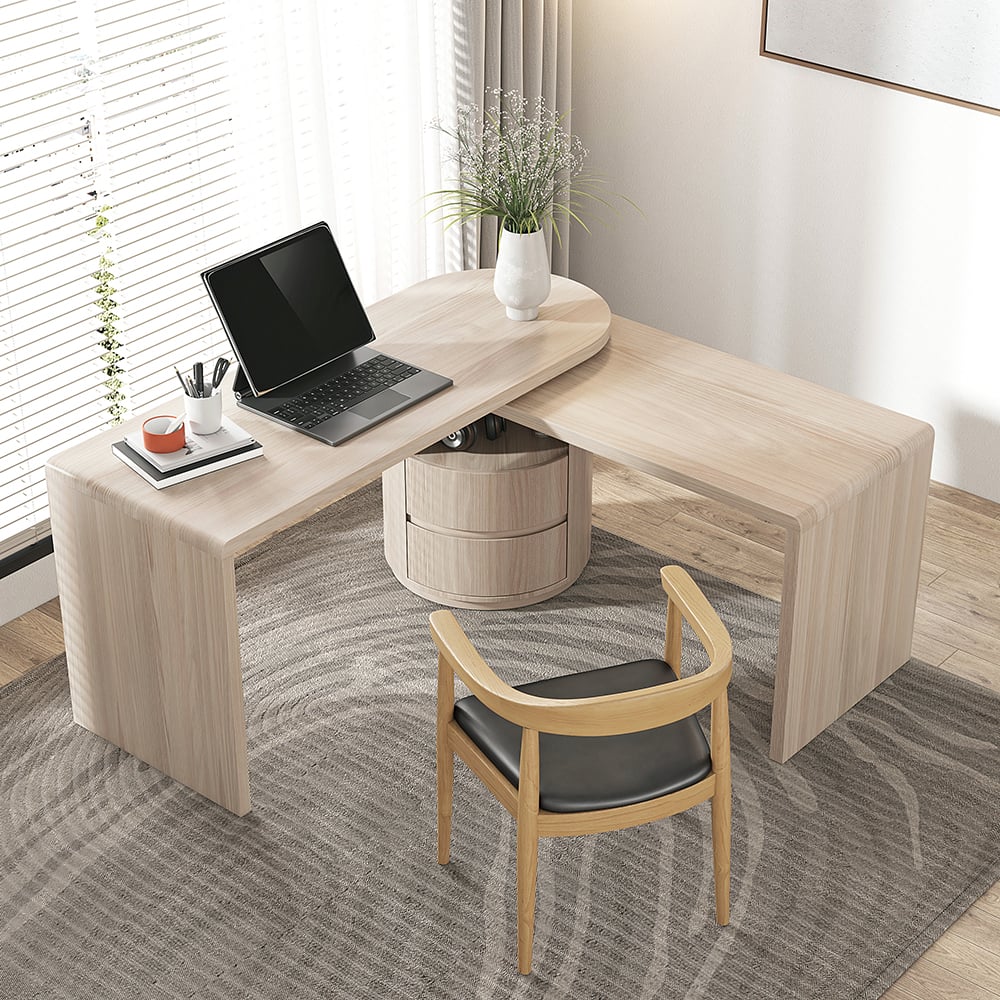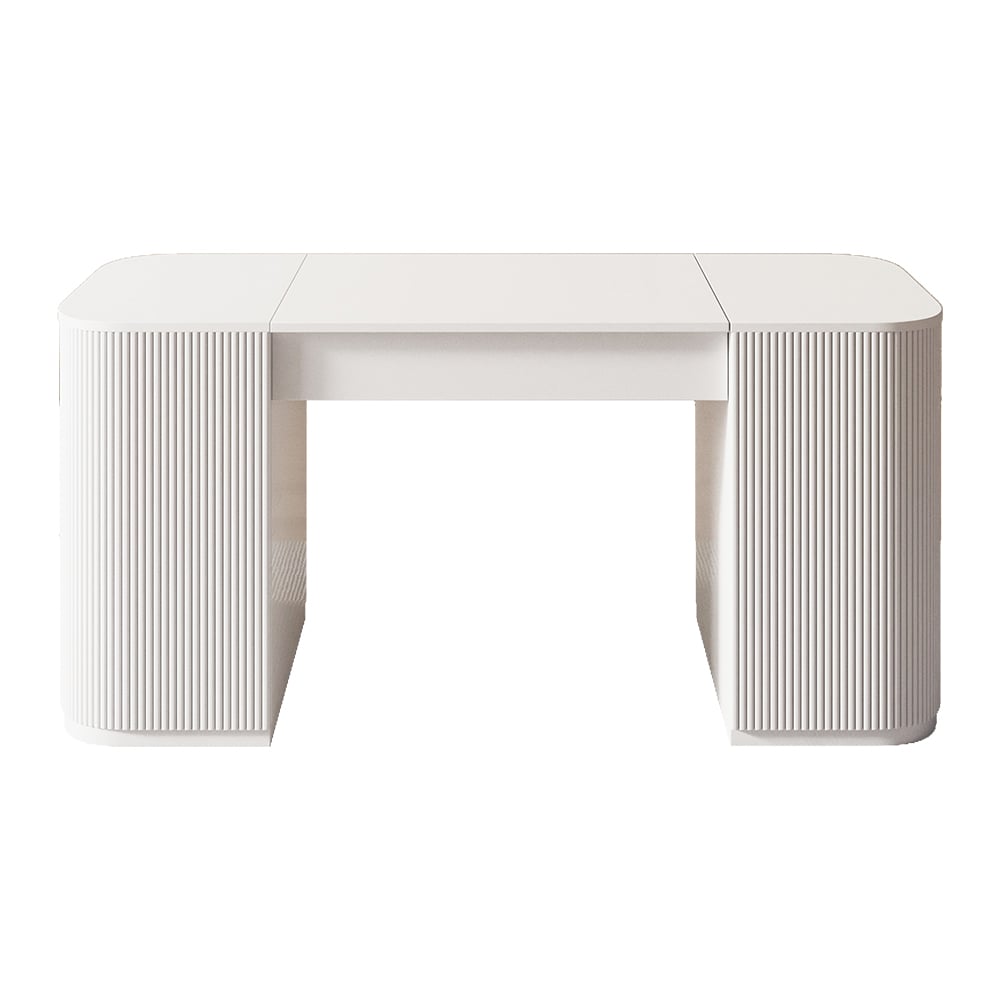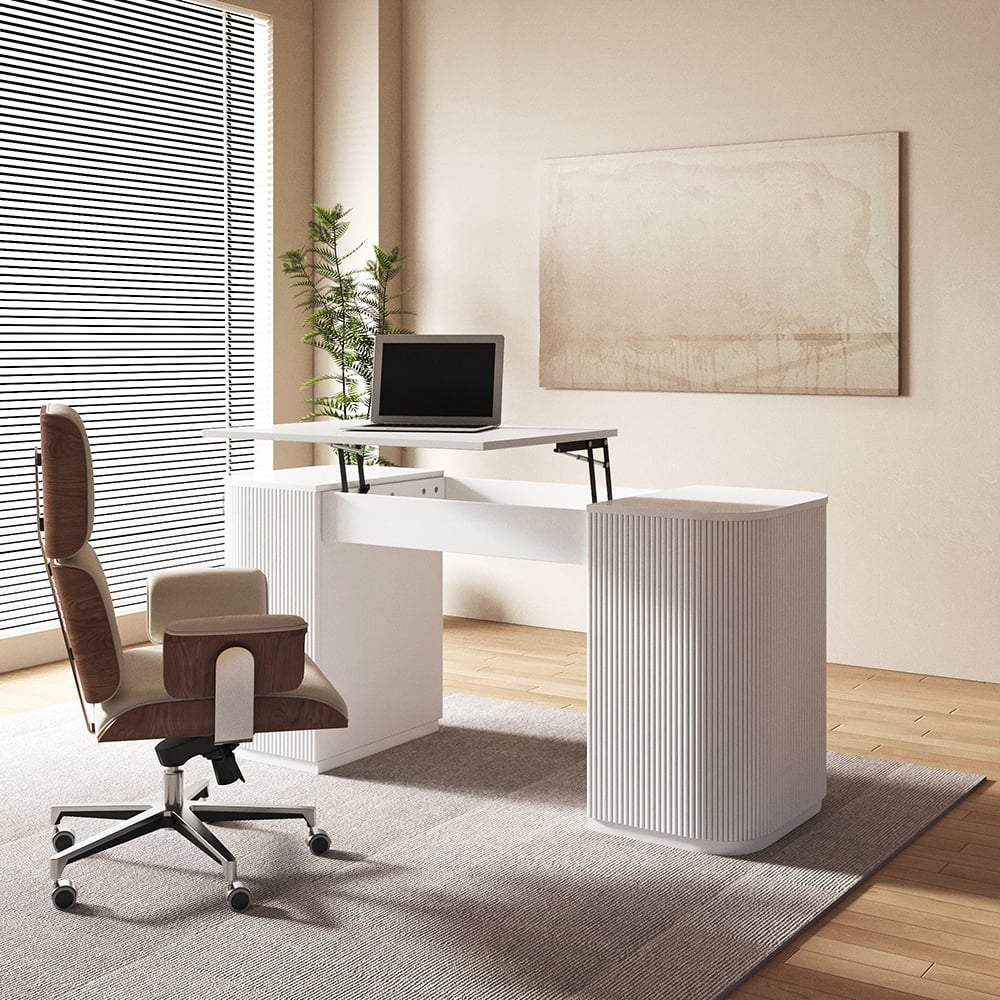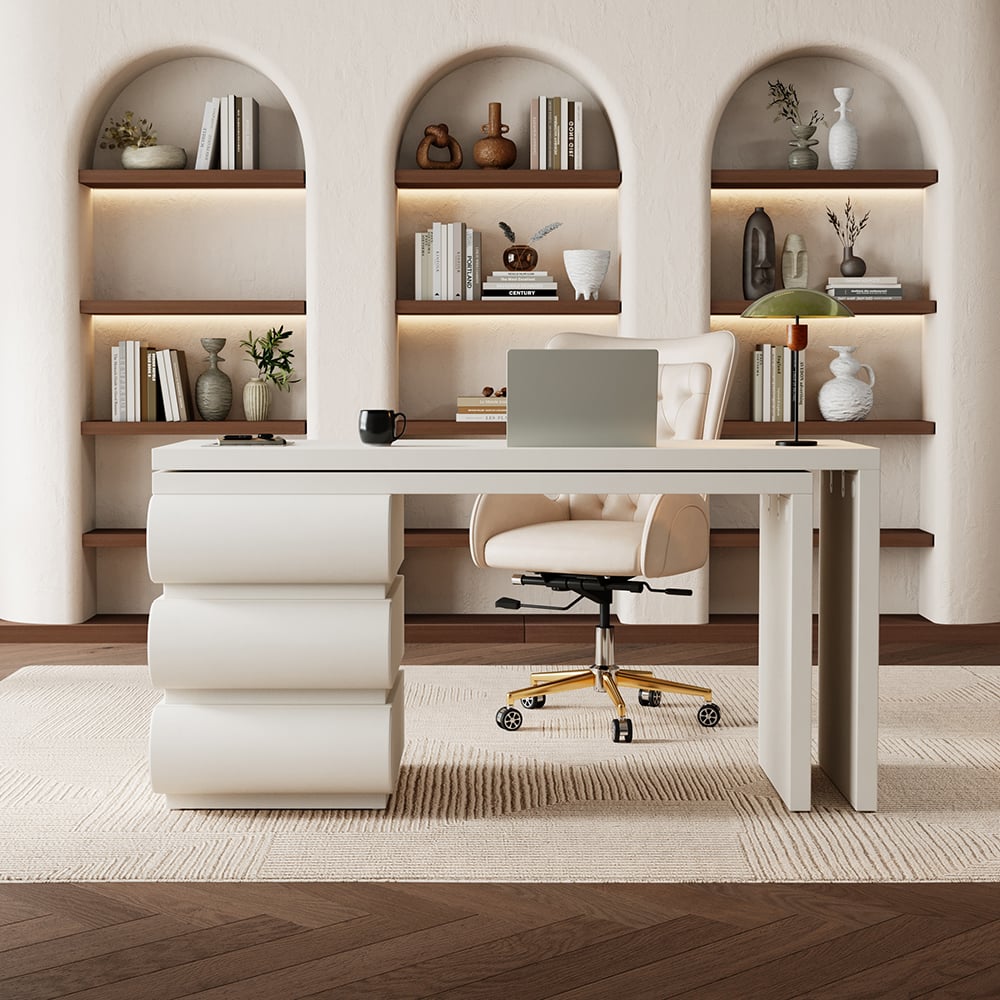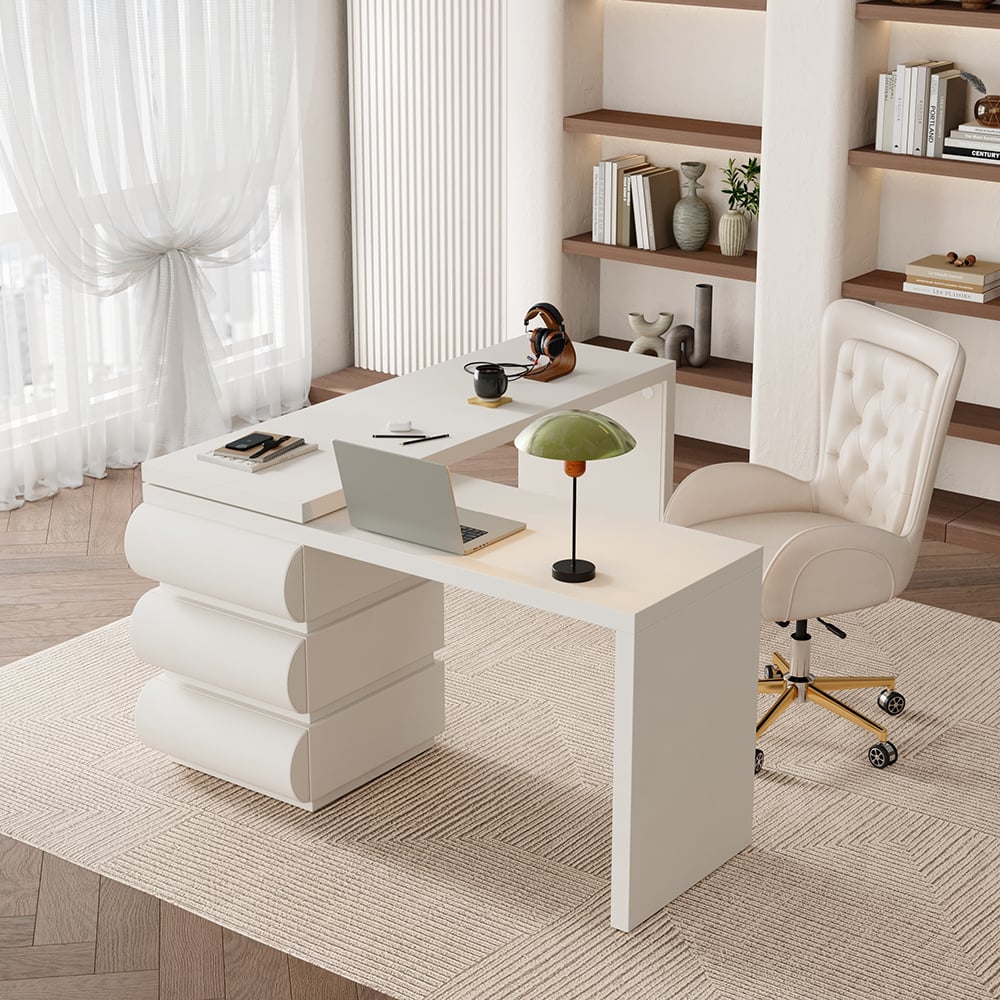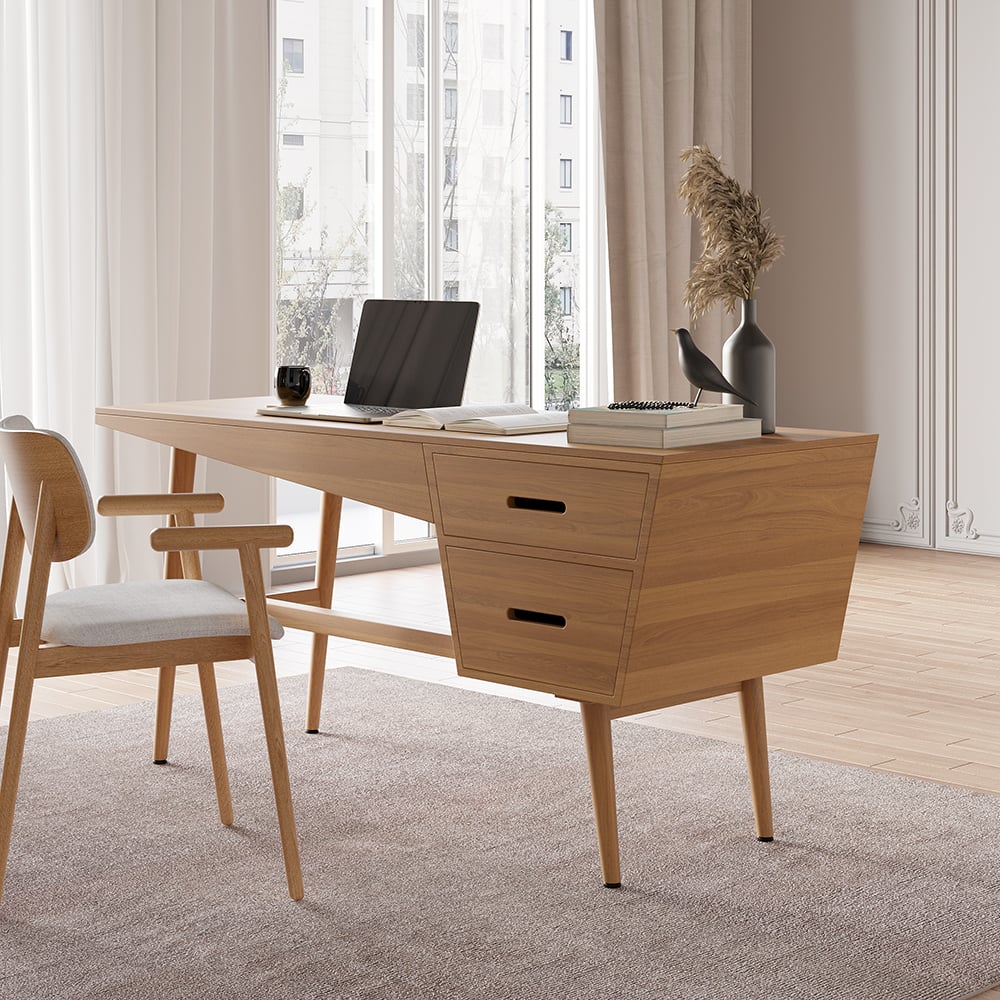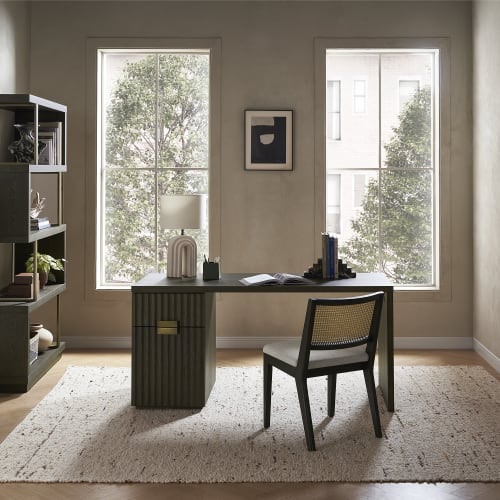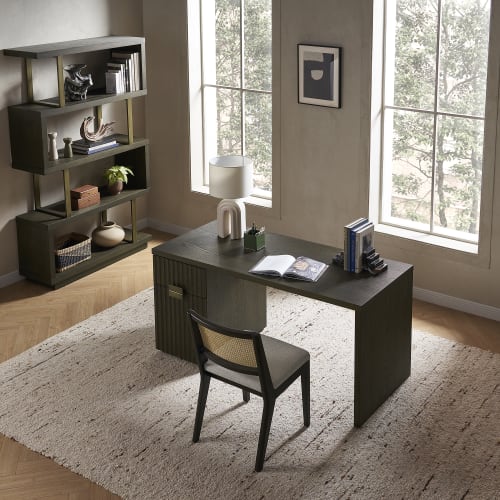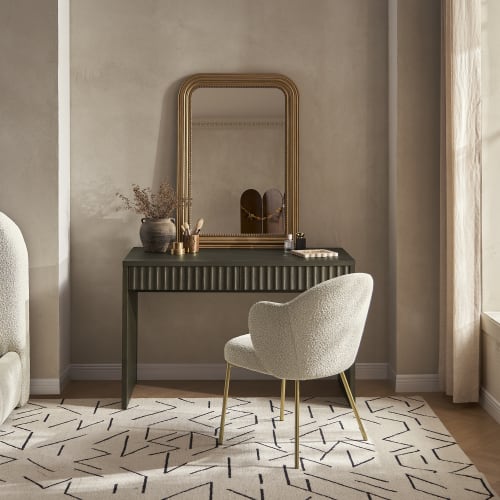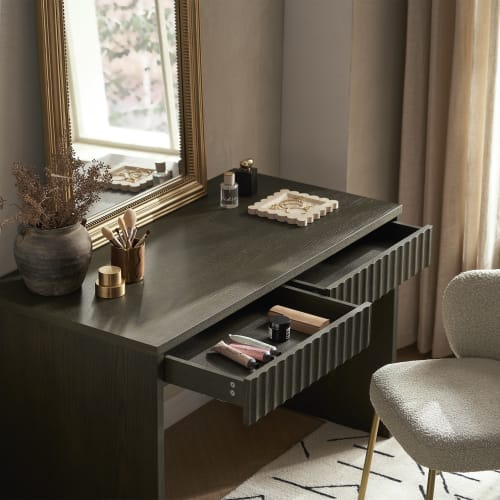Collection of Japandi Desks
The emergence of Japandi design finds its roots in a harmonious blend of Scandinavian functionality and Japanese minimalism, two styles that, despite their geographical distance, share fundamental principles about the importance of simplicity, natural elements, and comfort in living spaces. This fusion creates an aesthetic that emphasizes clean lines, understated elegance, and a deep connection to nature. The convergence of these two styles has led to the creation of serene and uncluttered environments that prioritize both beauty and utility.
In terms of classroom decoration, Japandi style focuses on creating spaces that promote concentration and calmness while fostering a conducive learning environment. Key tenets include the use of neutral color palettes—such as soft grays, whites, earth tones—and materials like wood, bamboo, woolen fabrics which are instrumental in crafting an atmosphere that encourages focus and well-being among students. Furthermore, this style emphasizes decluttered spaces where every element serves a purpose; thus promoting an environment where learners can engage deeply with their studies without unnecessary distractions.
At its core,Japandi’s philosophies center around concepts such as wabi-sabi (the acceptance of imperfection) and hygge (a quality of coziness). These philosophies reflect in classroom settings through the incorporation of comfortable textures for warmth alongside plants or other elements from nature to breathe life into learning areas. Moreover, sustainability plays a significant role within this style; by choosing materials thoughtfully with attention to their environmental impact ensures classrooms are not only aesthetically pleasing but also eco-friendly havens for education. Through these principles, Japandi design offers more than just aesthetics—it provides functional spaces imbued with tranquility essential for nurturing minds.
THE JAPANDI DESK: A Depiction of Simplicity and Functionality,
In the realm of interior design, Japandi style has seamlessly woven its principles into furniture design, with a particular emphasis on writing desks. These desks exemplify a marriage between aesthetics and functionality, embodying the minimalist ethos while catering to practical needs. The design of Japandi desks often features clean lines and a lack of ornamentation, focusing on the natural beauty of the materials used. This simplicity in form does not detract from functionality; instead, it enhances it by eliminating unnecessary distractions and promoting an organized workspace.
The materials chosen for Japandi-style desks play a crucial role in achieving this balance between beauty and utility. Commonly used materials include light woods such as oak or ash which contribute to creating an airy and bright atmosphere. Bamboo is another favored material due to its sustainability and strength, aligning with the Japandi emphasis on eco-friendly design choices. Metal accents are sometimes incorporated but always with restraint and purpose, ensuring that each element adheres to both aesthetic appeal and functional necessity.
The lines and forms found in these desks are deliberately understated yet profoundly impactful in shaping the mood within a learning environment. By adopting straight lines and gentle curves, Japandi desks encourage an orderly space that supports focus and productivity. There's an inherent tranquility in their simplicity which aids in reducing cognitive clutter; this makes them particularly suited for areas dedicated to study or creative endeavors where concentration is paramount.
This sense of tranquility is heightened by the mood these desks evoke within educational spaces or home offices - one of calmness coupled with invigorating clarity. They do not just serve as pieces of furniture but as catalysts for serenity amidst academic challenges or work pressures, fostering an ambiance conducive to learning, creativity,
